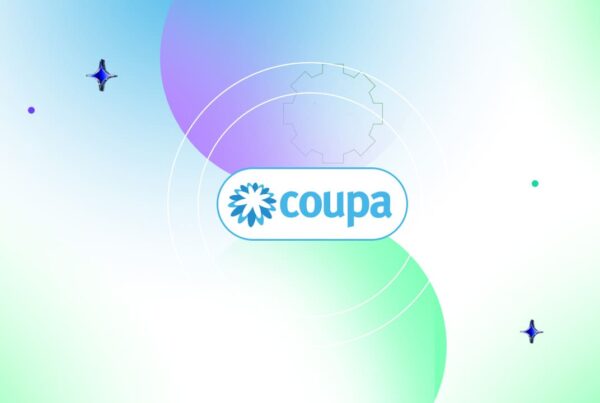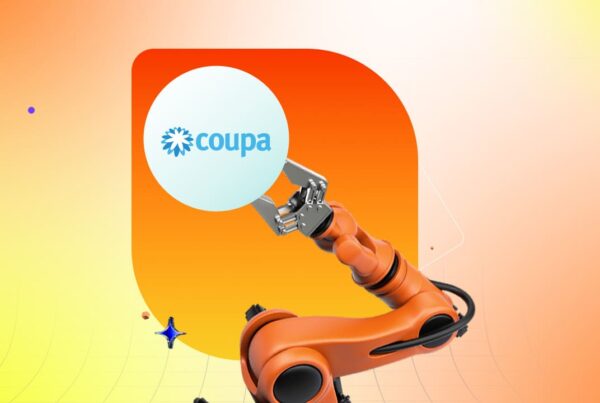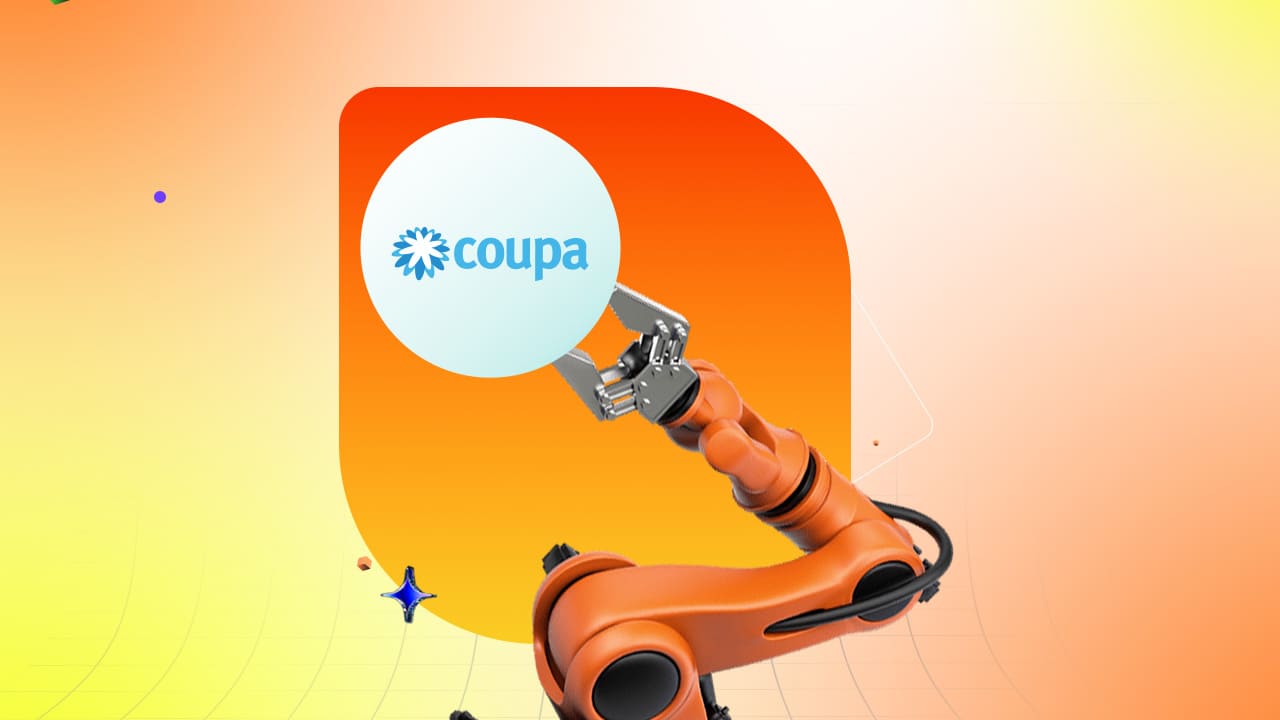Seamless Coupa Deployment Automation with ACCELQ

Enterprise Coupa deployments face a critical challenge: configuration mismatches between environments, outdated runbooks, and knowledge loss from team transitions. When deployment expertise resides in individuals rather than automated processes, strategic initiatives stall. Manual deployment processes consistently extend implementation timelines and increase dependency on specialized consultants, turning what should be routine updates into complex, high-risk operations.
Beyond Testing: The Deployment Automation Advantage
You’ve invested millions in Coupa to transform procurement operations. Your testing teams have validated every workflow, every integration point, and every business rule. Yet when deployment day arrives, value delivery stalls as teams navigate manual configuration steps, errors compound across environments, and planned deployment windows extend from hours to weeks.
This gap between tested perfection and deployment reality costs enterprises millions in delayed ROI and extended consulting fees. The solution lies not in more testing, but in automating the deployment pipeline itself.
The Deployment-Testing Gap in Spend Management
Most organizations pour resources into testing Coupa’s procurement modules, invoicing workflows, and expense management features. They validate business rules, check integrations, and meet compliance requirements. But when deployment time arrives, teams resort to manual runbooks, copy-paste configuration steps, and hope-driven release management.
Consider these deployment realities:
- Manual configuration migration introduces human error at scale
- Deployment validation relies on spot checks rather than comprehensive gates
- Rollback procedures exist only in PowerPoints, not executable automation
- Each deployment teaches painful lessons that vanish with departing consultants
From Months to Days: Transforming Implementation Timelines
Automation transforms Coupa deployments from marathon projects to sprint deliveries. According to Atlassian, deployment automation significantly reduces deployment time by eliminating manual intervention, allowing teams to ship updates more frequently (Source: Atlassian)
The acceleration comes from eliminating deployment friction:
- Automated environment provisioning replaces ticket-based infrastructure requests
- Configuration templates ensure consistency across all environments
- Parallel deployment paths replace sequential manual steps
- Self-healing deployments adapt to environmental differences automatically
Deployment vs. Testing: Understanding the Critical Difference
Testing validates that Coupa works correctly. Deployment automation ensures it arrives correctly. This distinction drives different automation strategies and tooling requirements.
Traditional Coupa testing focuses on functional validation:
- Purchase orders processed correctly
- Invoice matching rules apply accurately
- Approval hierarchies route appropriately
- Integration points exchange data successfully
Deployment automation addresses infrastructure and configuration challenges:
- Environment provisioning and teardown
- Configuration parameter management
- Database migration and synchronization
- Integration endpoint updates
- Certificate and credential rotation
Infrastructure-as-Code for Coupa Environments
Modern Coupa deployments treat infrastructure as versionable, testable code. Instead of clicking through cloud consoles or submitting infrastructure tickets, teams define their Coupa environments in declarative templates:
# Coupa environment template
coupa_environment:
name: production-us-east
specs:
compute:
instances: 4
type: m5.xlarge
database:
engine: postgresql
version: 13.7
storage: 500gb
networking:
vpc: prod-vpc-01
security_groups:
- coupa-app-sg
- database-sg
This approach enables version-controlled infrastructure changes, peer review of modifications, automated compliance scanning, and disaster recovery through redeployment.
The ACCELQ Deployment Acceleration Framework
ACCELQ transforms Coupa deployment from manual to an automated sprint through intelligent test automation that extends beyond functional testing into deployment orchestration.
Key framework components accelerate deployment:
- Environment orchestration provisions complete the Coupa landscapes
- Configuration intelligence manages complex dependencies
- Deployment workflows coordinate multi-stage releases
- Validation gates ensure quality at each phase
- Rollback automation provides instant recovery
Automating Pre-Deployment Validation Gates
Quality gates prevent defective deployments from reaching production. ACCELQ automates comprehensive validation before deployment proceeds:
Infrastructure Readiness:
- Database connectivity and performance baselines
- Required compute resources availability
- Network paths and SSL certificates
- Integration endpoints responsiveness
Configuration Validation:
- Required settings presence
- No conflicting values
- Reference data integrity
- Security policies application
Business Readiness:
- Critical workflows execution
- Key integrations data exchange
- Performance SLA compliance
- Security scan clearance
Deployment Rollback Automation
Despite the best preparations, deployments sometimes fail. ACCELQ’s rollback automation captures the pre-deployment state automatically:
When rollback triggers, the framework:
- Pauses incoming transactions
- Reverts the database to a snapshot
- Restores previous configurations
- Reestablishes integration connections
- Validates system health
- Resumes transaction processing
The entire rollback is completed in minutes, not hours, and works reliably every time because it’s automated and not interpreted from documentation.
Creating a Deployment Factory for Coupa
The deployment factory concept transforms one-off implementations into repeatable, manufactured processes. Like a physical factory produces consistent products, the deployment factory produces consistent Coupa environments.
Factory components standardize deployment:
- The template library contains reusable definitions
- The configuration catalog provides pre-validated settings
- Deployment pipelines orchestrate processes
- Quality checkpoints ensure compliance
- Metrics dashboards track performance
Organizations using deployment factories report an 80% reduction in deployment time and a 95% reduction in deployment defects.
Zero-Touch Deployment Orchestration
True deployment automation eliminates human intervention entirely. Zero-touch deployment orchestrates complex Coupa releases without manual steps:
Trigger Phase:
- Code commit triggers the pipeline
- Automated tests validate changes
- Approval workflows notify stakeholders
Execution Phase:
- Infrastructure provisions automatically
- Configurations are deployed in order
- Integrations establish connections
- Data migrations execute with validation
Validation Phase:
- Smoke tests verify functionality
- Integration tests confirm data flow
- Performance tests validate response times
- Business scenarios execute end-to-end
Integrating with Enterprise Release Management
Coupa deployments coordinate with ERP updates, integration changes, and business process modifications. ACCELQ integrates Coupa deployment automation with enterprise release tools:
- ServiceNow for approval workflows
- Jira for deployment tracking
- Jenkins/GitLab for CI/CD pipeline integration
- Ansible/Terraform for infrastructure
- Splunk/Datadog for monitoring
This enables unified release calendars, coordinated deployment windows, and enterprise-wide rollback capabilities.
Measuring Deployment Efficiency: New Metrics for Success
Traditional testing metrics don’t capture deployment effectiveness. New metrics quantify automation value:
- Deployment frequency: From monthly to daily
- Lead time: Code complete to production
- Deployment duration: Hours to minutes
- Rollback frequency: Failures requiring reversal
- Configuration drift: Environmental differences
Mean Time to Deploy (MTTD)
MTTD measures clock time from deployment initiation to production availability. World-class Coupa deployments achieve:
- Development MTTD: < 30 minutes
- Staging MTTD: < 2 hours
- Production MTTD: < 4 hours
Automation drives these times down continuously while manual deployments measure in days or weeks.
Deployment Quality Index (DQI)
DQI scores deployment reliability on a 0-100 scale:
Success Rate (40%): Successful deployments / Total deployments Configuration Accuracy (30%): Correct configurations / Total configurations Performance Impact (20%): Post-deployment performance / Baseline Security Compliance (10%): Passed checks / Total checks
| Metric | Weight | Formula |
|---|---|---|
| Success Rate | 40% | Successful deployments ÷ Total deployments |
| Configuration Accuracy | 30% | Correct configurations ÷ Total configurations |
| Performance Impact | 20% | Post-deployment performance ÷ Baseline |
| Security Compliance | 10% | Passed security checks ÷ Total checks |
A DQI above 95 indicates mature deployment automation. Scores below 80 suggest significant gaps.
Transforming Coupa Deployment with ACCELQ
Manual Coupa deployments represent the last frontier of digital transformation. While organizations automate procurement, invoicing, and expense management through Coupa test automation, they still deploy these automations manually. This paradox costs time, money, and competitive advantage.
ACCELQ’s deployment automation framework bridges this gap. By treating deployments as engineered processes rather than artisanal crafts, organizations achieve:
- 90% reduction in deployment time
- 95% reduction in deployment defects
- 100% repeatability across environments
- Immediate rollback capabilities
- Enterprise-scale test automation coordination
The framework works with your existing Coupa implementation, adding automation intelligence without disrupting current processes.
Ready to transform your Coupa deployments from marathon to sprint? Schedule a demo with ACCELQ to see deployment automation in action.
Balbodh Jha
Associate Director Product Engineering
Balbodh is a passionate enthusiast of Test Automation, constantly seeking opportunities to tackle real-world challenges in this field. He possesses an insatiable curiosity for engaging in discussions on testing-related topics and crafting solutions to address them. He has a wealth of experience in establishing Test Centers of Excellence (TCoE) for a diverse range of clients he has collaborated with.
You Might Also Like:
 Using ACCELQ to handle Salesforce Test Automation challenges.
Using ACCELQ to handle Salesforce Test Automation challenges.
Using ACCELQ to handle Salesforce Test Automation challenges.
 Seamless End-to-End Test Automation for Coupa by ACCELQ
Seamless End-to-End Test Automation for Coupa by ACCELQ
Seamless End-to-End Test Automation for Coupa by ACCELQ
 Seamless Coupa Deployment Automation with ACCELQ!
Seamless Coupa Deployment Automation with ACCELQ!
































